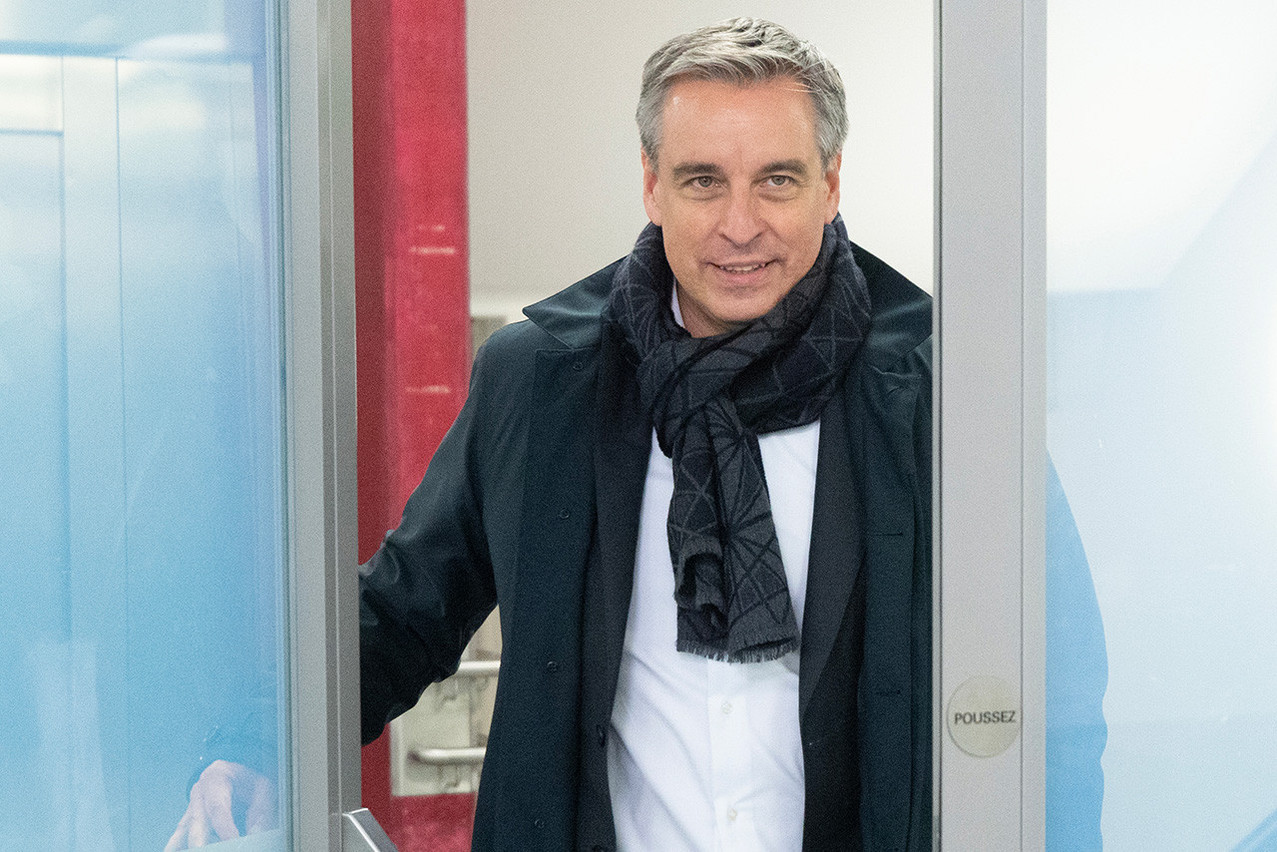(DP) has been minister for national education, children and youth since October 2013. He was reappointed to the new coalition despite the declared opposition of some teachers’ unions during the campaign. “Adapting education to changes in society is an ongoing challenge. To meet this challenge, we have moved forward together in recent years. We must continue along this path in order to adapt our education system to today’s Luxembourg by putting the child at the centre of our action. Helping children is this government’s ambition,” he insisted.
Background
For the years ahead, Meisch wants a “scientific” education policy. This means a policy that will be regularly evaluated in order to adapt the education system to the development of Luxembourg. “Monitoring the education system with a view to making informed policy decisions based on research and scientific facts is the cornerstone of a modern education landscape.”
He wants an education policy based on dialogue. Dialogue is a common thread running through the minister's speech. “It’s my role to moderate the debates between the various players, teachers, parents, pupils... Even if we can’t argue forever, and at some point we have to act and make a decision, I think we have to give dialogue a chance. I’ve noticed in recent years that there’s a growing awareness of the real challenges in Luxembourg. And I think that people are realising that saying that something needs to be changed doesn’t mean that it was a bad thing. Things have to change because society has changed. That’s the main thrust of our government’s education programme: to adapt our education system to the needs of society and the needs of young people.”
Education in dialogue
Meisch’s first actions will be to “listen and discuss.” “Tomorrow [30 November, editor’s note] will see the start of a process called Education in Dialogue with the Conseil Supérieur de l’Education Nationale. Around thirty meetings have already been scheduled until the end of January, when I will be consulting the partners in education, management, trade unions, parents’ representatives, pupils’ representatives, professional chambers, associations and also the managers of non-formal education, which does not depend directly and hierarchically on our ministry, but is managed by associations, local authorities or others... We are going to hold a wide-ranging debate on the government programme to gather initial reactions and then to structure the dialogue.”
Priority projects
Dialogue will be needed, as Meisch’s first major project--literacy and the language learning system--is provoking much debate.
“Luxembourg is a country marked by the diversity of its population and its languages. Multilingualism is an enormous opportunity. Just as it is an opportunity for young people to grow up in a multicultural environment. But for many, it is also a challenge, especially in our traditional schools with a traditional system geared towards a Germanophile Luxembourg population. Today, the population has diversified, and our schools are home to French, Portuguese and English speakers, as well as pupils from other parts of the world. That’s why we’re going to continue the process we’ve begun of diversifying the range of schools on offer by creating free public international schools that are accessible to all. And I also want to create a debate around making language learning more flexible in our traditional schools. Today, German is the compulsory language for literacy, but we want to open up the choice to French. We need to use multilingualism as an asset and avoid it blocking the development of many of our pupils.”
Meisch’s second major project will be to forge closer links with the non-formal education sector (which includes crèches, maisons relais and youth centres). Although this sector does not come under his ministry, Meisch intends to coordinate the efforts of all those involved so that “the educational system takes care of children and young people. All children and young people. Inclusion is and remains one of my priorities. As is the fight against dropping out of school.” With this in mind, the minister announced that work on the Youth Protection Bill will continue and will be implemented as quickly as possible.
Programming efforts
Another sensitive subject: school curricula. A wide-ranging consultation on the modernisation of school curricula will be launched at both primary and secondary level. The aim is to “anchor 21st century skills more firmly in the curriculum and further develop skills as diverse as creativity, collaboration and critical thinking, as well as multilingualism and digital skills.” At the secondary level, themes such as digitisation, sustainable development, financial education and food are being incorporated.
As for vocational training, it will be upgraded with a broader and more modern offering.
Finally, an anti-bullying programme will be implemented during the legislature.
The minister’s final project is a more personal one: that of combining his duties as education minister with those of housing minister.
Meisch has no doubt that he will succeed. “I am aware that these are two very important areas for the future of our country, two areas where there is no shortage of debate and where opinions are strong. I don’t underestimate the workload, but as the prime minister said, it’s not just the ministry of housing that is creating the framework for building more or investing more in housing. There are tax measures that need to be taken, authorisation processes that need to be reviewed and cooperation with the ministry of the interior and the local authorities that is essential. Housing is a collective issue within the government.”
This article was first published in French on . It has been translated and edited for Delano.
